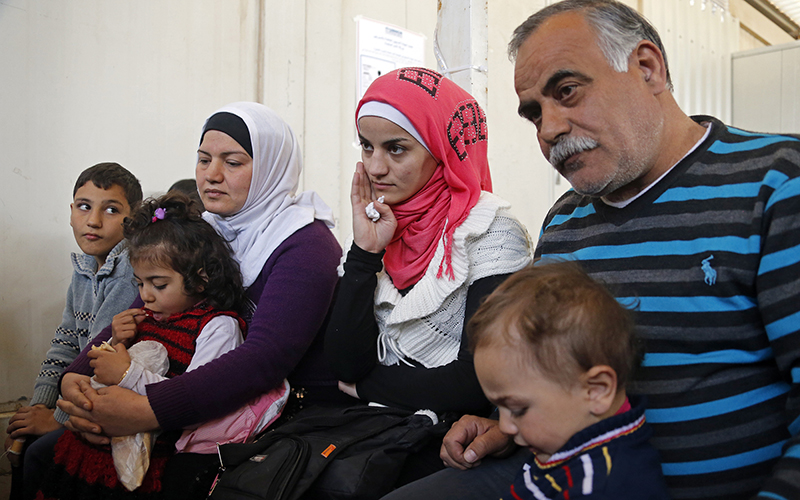WASHINGTON – Refugee organizations in Arizona and nationally said they were disappointed, but not surprised, at a Trump administration plan to reduce the number of refugees admitted to the U.S. to the lowest level in modern history next year.
White House officials announced late Thursday that the administration was proposing to cap the number of refugees admitted in the upcoming fiscal year to 18,000 people – with more than half those slots reserved for refugees from specific countries or in certain situations.
The figure is the lowest since the country’s current refugee act went into effect in 1980. Advocates said the announcement marks “a very sad day” for the U.S. and a move away from its longstanding tradition of welcoming people in.
Stanford Prescott, community engagement director for the International Rescue Committee in Phoenix, said the reduction would come “at a time in which there are more refugees on our planet today than at any time since World War II.”
“With the decrease in overall refugees, we will see many other refugees who are still in danger who will not have the opportunity to come here,” Prescott said. Those fleeing countries such as Syria, Somalia and Afghanistan, will face a “very small bracket” of available spots, he said.
The refugee ceiling has been cut annually since President Donald Trump took office, from 110,000 in President Barack Obama’s last year in office to 45,000 in fiscal 2018 and 30,000 this year.
Senior administration officials who announced the plan Thursday said they expect some 368,000 to apply for asylum or refugee status in fiscal 2020. They said the changes are needed so officials can address the backlog of over 1 million asylum applicants and the “humanitarian crisis” on the southern border.
Under the proposal, many of the 18,000 slots would be dedicated to people fleeing persecution in Guatemala, El Salvador or Honduras; those fleeing religious persecution; or Iraqis who have worked with the U.S. That would leave just 7,500 spots open for applicants regardless of country.
Officials who announced the plan said categorizing applicants into these groups addresses the federal government’s law to resettle “refugees of special humanitarian concern.”
A related executive order issued Thursday would allow state and local governments to reject resettlement of refugees in their communities. Resettlement would be prohibited unless both state and local officials had agreed in advance.
“This will be the first time that states and localities can really refuse to take in refugees,” said Julia Gelatt, senior policy analyst for the Migration Policy Institute.
Gelatt said the announcements do not come as a surprise from an administration that has shown more interest in funding refugee resettlement efforts in other countries rather than admitting them to the U.S. Nevertheless, the proposal, she said, presents an unprecedented shift.
“This is a big development to say that states – entire states – can opt out of the refugee resettlement program or you know local cities within states can opt out,” Gelatt said. “We’ll have to see how the states and localities respond to that.”
The plan still needs congressional approval, and advocates such as Prescott said they will press Congress to set a minimum ceiling of 95,000 refugees next year.
Prescott is one of dozens in Arizona, and hundreds nationally, who penned a letter to Trump demanding an increase in the refugee cap, which they said abandons the U.S. role in the world as a welcoming nation.
“By reducing the number of refugees who are admitted into the country, it prevents us from continuing that tradition and that legacy,” he said.

